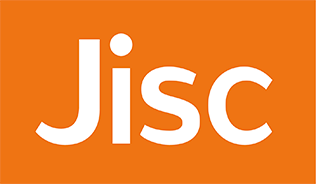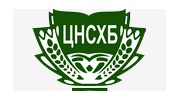N. A. Setnitsky. Labor worldview: From the philosopher’s archive // The Russian Peasant Studies. 2024. V.9. №3. P. 127-148.
DOI: 10.22394/2500-1809-2024-9-3-127-148
Annotation
This publication consists of the archival articles and notes by Nikolai Aleksandrovich Setnitsky (1888–1937), philosopher, economist, statistician and one of the leading representatives of the noospheric, cosmic thought of the 1920s–1930s, which is associated with the preservation and creative development of N. F. Fedorov’s ideas. These works were written in 1923–1924, when Setnitsky lived and worked in Moscow; together with his like-minded friends A. K. Gorsky and V.N. Muravyov he studied the issues of labor and its scientific organization, relevant for the first post-revolutionary decade. Unlike theorists of the scientific-organization-of-labor approach, cosmists of Fedorov’s orientation interpreted labor as a world- and cosmos-organizing human activity in nature, which aims at overcoming chaos, death and decay, thus opposing entropy. Some works were intended for the journal October Thought with which Gorsky and Setnitsky collaborated in 1924. Setnitsky’s reflections on the purpose of labor were combined with reflections on the meaning of culture as a good cultivation and a creative transformation of the world. Articles about the labor worldview as requiring human activity in nature and in this sense opposing the passive-consumer attitude to land led to the issue central for Setnitsky — exploitation or regulation, which he considered in a special article. In the subtext of his articles for the Soviet audience, Setnitsky practically removed the religious-philosophical interpretation of the concepts of regulation, labor and culture, which he linked to the fulfillment of the commandment to “subdue the earth” and the eschatological re-creation of the world; however, some verbal and semantic patterns hinted at the original active-Christian direction of his thought. The published texts are part of Setnitsky’s Harbin archive in the Fedoroviana Pragensia collection of the Literary Archive of the Museum of National Literature (Czech Republic). F. 341.
Keywords
Archival heritage of N. A. Setnitsky, cosmism of the 1920s–1930s, philosophy of labor, regulation, culture, fight against entropy, transformation of the world, projectivism.
About the authors
N.A. Setnitsky
Publisher — Anastasia G. Gacheva, DSc (Philology), Leading Researcher, A. M. Gorky Institute of World Literature of the Russian Academy of Sciences; Head of the Center for Cosmism Studies, Moscow School of Social and Economic Sciences; Chief Librarian and Researcher, N. F. Fedorov Library No. 180 in the South-West Administrative District of Moscow. 25A, bld. 1, Povarskaya st., Moscow, 121069.
E-mail: This email address is being protected from spambots. You need JavaScript enabled to view it.
The fight against hunger in the philosophy of Russian cosmism: N. F. Fedorov and Universal Cause collections
Oct 25 2024Gacheva A. G. The fight against hunger in the philosophy of Russian cosmism: N. F. Fedorov and Universal Cause collections // The Russian Peasant Studies. 2024. V.9. №3. P. 25-46.
DOI: 10.22394/2500-1809-2024-9-3-25-46
Annotation
The article is the first part of the study of the issues of hunger in the philosophy of Russian cosmism. Its representatives believed that we need to study natural processes and their management to solve the problem of hunger, emphasizing that regulation requires complete knowledge and universal solidarity. The article examines the ideas of N. F. Fedorov, who suggested to consider the issue of overcoming hunger in the Christian context, defining the regulation of nature as the fulfillment of the commandment to “possess land”. The author reconstructs the dynamics of the perception of the hunger problem in the first collection Universal Cause (1914) and in the draft of the second collection compiled by A. K. Gorsky and N. A. Setnitsky in 1920 during the devastation of the Civil War. The article also presents the results of the analysis of the one-day newspaper To the Rescue! published under the famine of 1921–1922.
Keywords
Philosophy of cosmism, problem of hunger, regulation of nature, legacy of N. F. Fedorov, A. K. Gorsky, N. A. Setnitsky, Universal Cause.
About the author
Anastasia G. Gacheva, DSc (Philology), Leading Researcher, A. M. Gorky Institute of World Literature of the Russian Academy of Sciences; Head of the Center for Cosmism Studies, Moscow School of Social and Economic Sciences; Chief Librarian and Researcher, N. F. Fedorov Library No. 180 in the South-West Administrative District of Moscow. 25A, bld. 1, Povarskaya st., Moscow, 121069.
E-mail: This email address is being protected from spambots. You need JavaScript enabled to view it.























